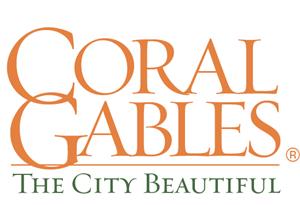Graduate school enrollment is growing rapidly, yet paying for graduate school is still much more challenging than paying for undergraduate college. Since paying graduate programs offer fewer resources like grants and scholarships, many students rely on student loans. Only 15% of students enroll in graduate programs, yet 40% of federal student loans issued each year go to financing PhD and master’s degrees-amounting to over $37 billion owed annually.
Many graduate students finish school with over $100,000 borrowed in student loans, only to find that the median full-time annual salary for recent graduates ranges from just $55,000 to $65,000 a year. When you’re struggling with student loan debt, it can be difficult to know when or where to find help. McCarthy Law may be able to help you regain control of your student loan debt if you are experiencing any of the following:
- A starting income that is significantly lower than your debt balance
- A lender suing you for defaults
- Harassment from a debt collection agency
- A dispute with a loan servicer
- Confusion about your legal rights or options for a defaulted student loan
- Uncertainty about your eligibility for student loan repayment or forgiveness programs
Student Loan Forgiveness for PhD/Graduate Students

Unlike other student loan assistance companies, our team of skilled attorneys is overseen by state licensing boards and held to strict rules about confidentiality and accountability. Unlicensed companies don’t offer protection against mistreatment or fraud, but McCarthy Law is equipped to defend you should any of these instances arise.
When a student loan is forgiven, it means that, as the borrower, you are no longer required to repay some or all of the loan. There are quite a few student loan forgiveness or discharge programs that you could qualify for, including:
- Public Service Loan Forgiveness (PSLF): For full-time employees of the United States federal, state, local, or tribal government or non-profit organizations that hold federal student loans and have made 120 payments under their income-driven repayment plan. Apply here if you think you may qualify.
- Teacher Loan Forgiveness: Full-time teachers that have worked 5 consecutive years in a low-income school may be eligible for up to $17,500 forgiven from their federal student loans. To apply, submit this form to your loan servicer.
- Closed School Discharge: If your school shut down while you were enrolled or not long after you withdrew, you could be eligible for 100% discharge of your federal loans. Contact your loan servicer to see if you qualify.
If you borrowed your student loans from a private lender, however, your forgiveness options are few and far between. Thankfully, private student loan debt is the bread and butter of McCarthy Law. Our private student loan debt experts will be able to create a detailed plan to protect you from lawsuits and bring your debt to a more manageable level.
How Do You Know if Your Student Loans Are from a Federal or Private Lender?
Before you can begin the process of relieving your student debt, you’ll need to find out if your loans are from a federal or private lender.
If your loans are federal, they will show up on the Federal Student Aid website (studentaid.gov) when you log in with the FSA ID you used for your Free Application for Federal Student Aid (FAFSA). If you are unable to find your loan information on the Federal Student Aid website, then you’ll know that your student loans must be private.
Private student loans will require a little more digging. First, check your student loan bill for the name of your lender-it should show up somewhere on the page. If that doesn’t work, your https://badcreditloanshelp.net/payday-loans-az/ school’s financial aid office should be able to track them down for you. If all else fails, check your free annual credit report for your lender’s name.
